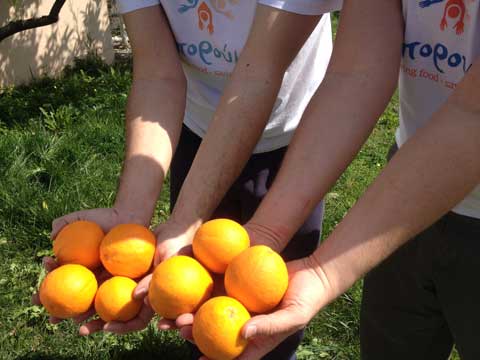- About
- Topics
- Picks
- Audio
- Story
- In-Depth
- Opinion
- News
- Donate
- Signup for our newsletterOur Editors' Best Picks.Send
Read, Debate: Engage.
| October 12, 2018 | |
|---|---|
| topic: | Food Security |
| tags: | #war, #drought, #Afghanistan |
| located: | Afghanistan |
| by: | Shadi Khan Saif |
In a country marred by decades of violence, the UN estimates at least 275,000 more people are on the run — 52,000 more than the number uprooted by conflict this year — with over two million threatened by the effects of water shortages. This is particularly concerning as millions of people rely on farming in the land-locked country. What’s more, the agricultural output dropped by close to 50% this year, owing to a shortage of water caused by little or no snow in the winter.
The grimness of the calamity can be gauged from the fact that 20 out of the total 34 provinces across Afghanistan are faced with shortages of water. Among the worst affected provinces is Ghor, in the centre of the country. Animal husbandry and agriculture are the main sources of income in this mountainous province where a large part of the population finds it hard to cover their basic needs with their level of income.
Mohammad Kareem, a local livestock breeder, told FairPlanet the herds of sheep are getting weak and sick, and it is becoming difficult to feed them. “The whole village has no other way left but to sell off the herds at throwaway prices and to migrate away from their homes in search of water”.
This shepherd added non-availability of food and water for the animals literally means the human population, which is heavily dependent on the livestock, is also at risk of starvation. “People here have no other jobs, we used to breed the livestock the whole year and later sell them on reasonable prices, but now we are forced to sell them on loss instead of profits”.
Bundling all the belongings from his mud house, Mir Alam, a father of six, sighed there are no signs of hope to stay here. “The drought has just got worst this year, last year was not very good either, God forbid, if it did not rain or snow later in the year, a human catastrophe would emerge from here”, he told the FP.
It is feared that the persistence of the situation will seriously disrupt the food cycle and eventually lead to famine in the war-ravaged country.
Despite the ramping-up of humanitarian action across all affected areas, local officials fear they are helpless against nature amid drastic changes in weather patterns, and there are no sustainable alternate ways and means to safeguard the farmers and livestock breeders from shortages of rain and snow.
Abdul Hai Khatibi, spokesman for the provincial administration, lamented it is beyond their abilities and resources to manage the situation. “There have been no rains recently, and the livestock herders fear all of their animals might die due to hunger and thirst”.
In a regular update, the UN humanitarian office has reported that 120,000 people fleeing the drought arrived in Qala-e-Naw City in neighbouring Badghis Province in one week of September. A second UN report said more than 100,000 people may have moved to neighbouring Herat City for the same reason by the end of last month. It estimated 2.2 million Afghans would be affected by the drought this year. "The assessment also indicates that most farmers lost last season's harvest and nearly all of them lack seeds for new planting season," the UN report said, noting reports that about 40% of livestock has been lost in Badghis due to a lack of pasture and fodder.
At the end of a two-day joint visit to Afghanistan, the UN High Commissioner for Refugees, Filippo Grandi, and the United Nations Under-Secretary-General for Humanitarian Affairs and Emergency Relief Coordinator, Mark Lowcock, called on donors to urgently increase and sustain support for the humanitarian response amid escalating violence and distressing drought in this lingering conflict. “Without a solution to displacement, there will be no lasting peace", Grandi warned.
Amid continued conflict, the drought means reduced labour opportunities as well as a severe reduction in wheat production; a deadly formula for a nation reeling from almost half a century of war.
By copying the embed code below, you agree to adhere to our republishing guidelines.
